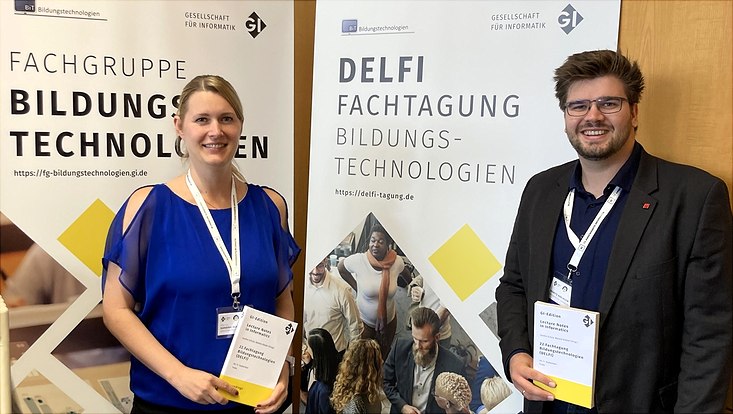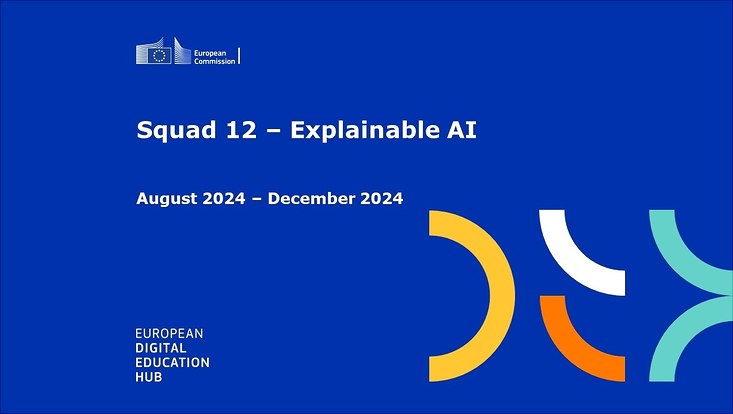Modern Science and Experiences from AI Teacher Training at the University of Hamburg: the Computer Science Education Working Group at DELFI Conference 2024
13 September 2024

Photo: UHH/Schulz
The DELFI 2024 conference for educational technologies, organized by the same-named special interest group of the German Informatics Society, offered modern approaches for scientific events and insights into current research and teaching in the field of computer science education from 09.09.-11.09.2024 at Fulda University of Applied Sciences.
As PC Chair, the head of the Computer Science Education Working Group at the University of Hamburg, Prof. Dr. Sandra Schulz, in collaboration with Co-PC Chair Natalie Kiesler ( TH Nuremberg), contributed to the success of the conference and particularly emphasized and promoted Open Data at this conference. Contributions with fully published and freely accessible data were awarded an “Open Data Badge” in the conference proceedings and on the name badges. This initiative sets an important accent in the discussion about Open Science and offers incentives for future research projects that aim for transparency and accountability.
However, this conference is characterized by much more: One of the outstanding innovations was the switch to entirely digital conference proceedings, which helped to save over 88,000 pages of paper. This climate-friendly concept is in line with the principles of sustainability, which are also a high priority at the University of Hamburg. For participants who still want a physical souvenir of the conference, a creative DIY sheet was provided for a deceptively real cover of the conference proceedings. Also, at a time when the balance between work and family life is increasingly coming into focus, the DELFI conference provided areas of retreat and childcare facilities for families with small children and accompanying persons. In addition, transparency in scientific reporting was increased through the possibility of providing references outside the page limit of conference publications. This promotes a well-founded discussion of theories and methods and supports good scientific practice.
On the second day of the conference, Moritz Kreinsen, research associate and PhD student in the working group, presented the evaluated practical experiences of the joint project “Teacher AID Lab”, which was funded by the Digital and Data Literacy in Teaching Lab (DDLitLab) last year. The concept aims to integrate data literacy and AI literacy into practice-integrated teacher training and offers a low-threshold approach to the computer science concepts of artificial intelligence for all pre-service teachers in the Master's program.


